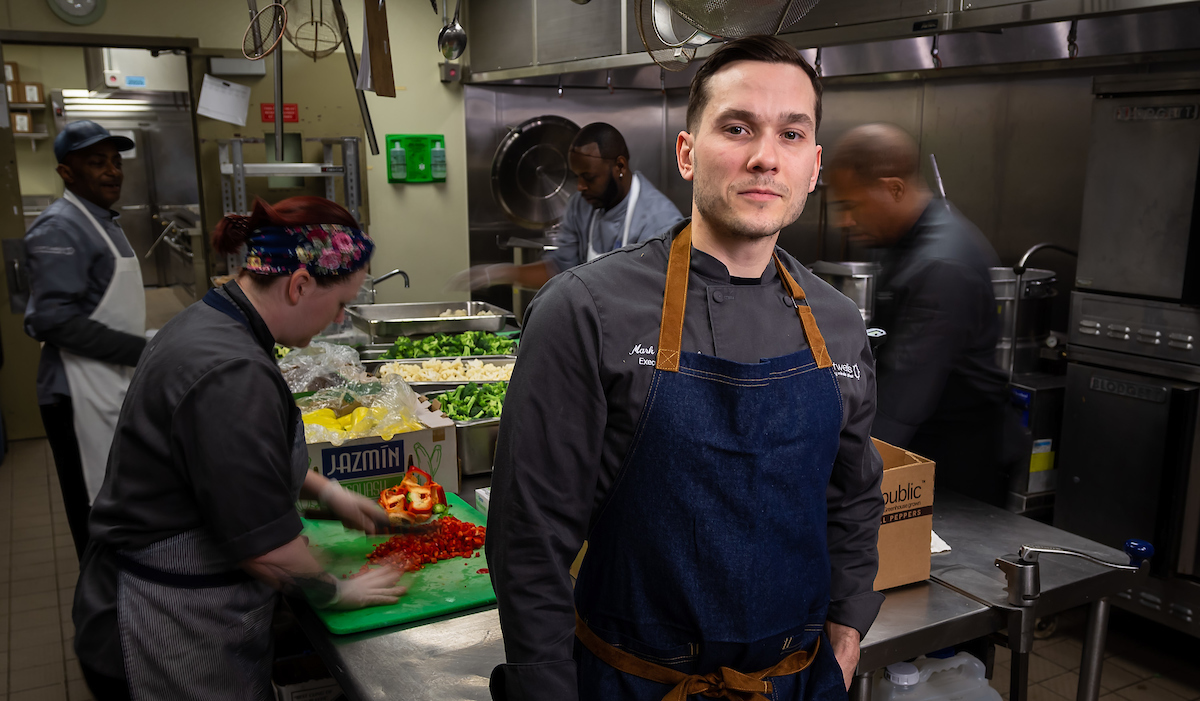 As executive chef of Chartwells at DePaul, Mark Matijevich and his team serve thousands of Blue Demon diners. (DePaul University/Jeff Carrion)
As executive chef of Chartwells at DePaul, Mark Matijevich and his team serve thousands of Blue Demon diners. (DePaul University/Jeff Carrion)
“Just on the Lincoln
Park Campus alone we have 28 menu items that change daily — we don’t repeat recipes
or dishes,” Matijevich. “So we stay pretty busy.”
After earning a Bachelor’s
degree in organizational leadership from Purdue University-Lafayette,
Matijevich moved to Chicago to attend Le Cordon Bleu. He received an
Associate’s degree from the culinary school and joined The Second City as
executive chef to help develop the company’s in-house bar and restaurant, 1959.
Five years later he left to join Chartwells, becoming executive chef of the
DePaul partnership in April 2018 and helping transition DePaul into its new
dining hall system.
“It’s been a great experience working with everyone and being on
board during such a big transition,” he says.
In addition to managing
a new dining system, Matijevich and the Chartwells team also handle an
ever-changing menu. From homestyle comfort food to pastas and pizzas to vegan
and vegetarian options, Matijevich plans out every item offered through the
dining halls. He and his team spend the summer and winter breaks planning each
day’s offerings. Then every morning, they crack open their recipe books to create
the meals from scratch.
What makes DePaul’s food
unique when compared to typical college food?
“Homemade recipes and
completely fresh produce,” Matijevich says. “We also try to incorporate
feedback from students on what they would like to eat. Whether through our
online feedback form or just walking around the dining hall chatting, we are
always looking to hear from students and hone in on what will make the
experience better for them.”
Beyond ensuring students
are well-fed enough to make it through their classes, Matejivich notes the
social impact he’s seen the new dining system have on students and other
diners.
“With an all-you-can-eat
operation, people are hanging around more — socializing more with the folks
next to them and making more conversation,” he says. “That’s important in
college, and especially with freshmen, who we see in here the most. As someone
in the culinary field, that’s great to see. We strive to make food people want
to eat, but we also want to make food that will make students' experience on
campus that much better.”